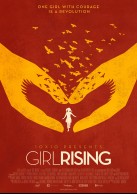Joan
Bennett, a fungal geneticist at Rutgers University, delivered Friday’s “Conversations
in Equity and Excellence” lecture on “Sex, chromosomes, and Success” at Syracuse University. She began with a simple reminder that “girls
and boys are usually distinguishable from one another at birth.” But many differences from that point are
socially or culturally imposed, including dress (little bows and earrings on
infant girls), dueling in Germany (until banned by Hitler), foot binding in
China, Thailand’s brass neck rings, and corsets (and the damage they caused to
internal organs) in western countries. Current trends in plastic surgery are a
modern version of this.
 |
Fig. 1. Percentage of Women on Physics Faculty by Country.
http://amptoons.com/blog/2005/01/22/percentage-of-women-on-
the-physics-faculty-by-country/
|
“Biology matters! But
so does culture” she continues. Women’s
roles in society have been largely defined by biology, and in their
relationships to men. Even outside of
family, there have historically been few opportunities for work: prostitute, wet nurse, maid, and nun. Midwifery was noted as the most respected
position, but with limited opening. In
the sciences, women found places in agriculture, textiles and pottery. Things began to change with the industrial
revolustion when physical strength became less important, and when Queen
Victoria and Empress Cixi held positions of power. Educating women became more common, although
not universal. In WWII, women were
called upon to “do the work that he left behind” And the single most important factor that
improved choices for women: birth
control. “Its hard to have an intellectual
life when everytime you have sex you risk getting pregnant.” She notes that most methods were not common,
or legal into the 1960s. Among her own
cohort, friends dropped out of college when they became pregnant and
married. Through this time, the fields
open to women were nursing, teaching and library science. Most other tracts were, and still remain,
male dominated. Women’s Colleges became
havens. And through the second wave
feminism of the 60s and 70s, many women “stayed at home, but planted seeds in
their daughters.”
"Now, women dominate undergraduate programs, but they remain stubbornly underrepresented in STEM fields." She displayed a chart showing the % of women comprising Physics Faculty ca 2005, and dismisses the notion that women’s genetic composition varies that markedly between geographically close countries, confiding that culture must have something to do with it as well.
In terms of success, Bennett introduces bias and gender schemas with a quote by Sally Kempton, “It's hard to fight an enemy who has outposts in your head.” She referenced the1970s study which demonstrated that far more women are offered orchestral seats when those auditioning are screened from those ranking them, and the 2012 PNAS articled that revealed that science faculty still harbor subtle biases that rate John higher than Jennifer, offer him a higher salary and more mentoring, despite identical (save first name) of the fictional applicants.
The current hurdle that women must face is that in ‘traditional’ homes, each two adult household had a wage earner, and someone to take care of everything else: 2 people, 2 jobs. But dual career couples also require someone for the unpaid work. It doesn’t make sense to “just train men to take up more at home” because it’s a lot more work for both partners.
 | |
| Figure 2. Equitable expectations? http://www.leftycartoons.com/wp-content/uploads/wage_gap.png |
Bennett also
points to the cumulative disadvantage of micro-inequities outlined by Virginia
Valian’s integration of psychology, sociology, economics, and
neuropsychology in Why So Slow? The Advancement of Women (MIT Press,
1998).
What can we do?
“Organize! Be aware! And provide visibility to women who have
achieved” by nominating for awards and other distinctions (http://raiseproject.org ), and writing
Wikipedia entries. Mentor.
 |
| Figure 3. http://xkcd.com/385/ |
“If Humor doesn’t
work, try glamour” pointing to Danica McKellar’s popular press math books http://www.mathdoesntsuck.com .
Be aware of embedded media messages like “Saucy Feminist
that Even Men Like.” (Time magazine cover, May 7, 1971, featuring Germaine
Greer), or The Atlantic “WhyWomen Still Can’t Have It All” . “Why doesn’t anyone ask this about men? If you can’t substitute [the word] men for
women, there is an embedded message” says Bennett.
Do good science. And celebrate the positive societal forces,
rather than dwelling on the negative ones.
When the talk turned to Q&A, SU
Advance director Marie Garland inquired about what policies have helped Rutgers
faculties deal with the “3rd job”?
“Rutgers has wonderful tenure extension polices, but it hasn’t been good
about child care.” They do finally have
limited on-campus infant care options. “ It isn’t the institutions place to
dictate how families handle their situations,” but she reminds us that “it’s OK
to hire someone else to clean, and perhaps pay the woman, as it most certainly
will be a woman, more than she’d receive at McDonalds and pay her social
security [contribution].” The final
question “Are women and minorities still overburdened [and under credited] with
committee work?” Yes. She praised Stanford’s time banking system
for rewarding extra teaching and committee service, and it's intent to help faculty find both work-life and
work-work balance (http://gender.stanford.edu/news/2013/school-medicine-initiative-helps-faculty-achieve-balance). Credit can be exchanged for other things such as clerical assistance or meals to be brought home for their families. “Quite a few men are taking advantage of the
meal service.” (Note: the
University of Central Oklahoma’s offers a more limited scope “Merit-Credit”
system http://www.uco.edu/academic-affairs/faculty-staff/merit-credit.asp
that rewards teaching, scholarly/creative activity, or
service with support toward it.)
For more about SU ADVANCE, please visit: http://suadvance.syr.edu





